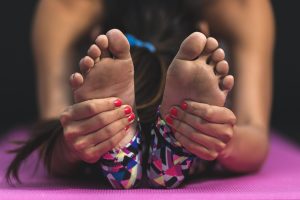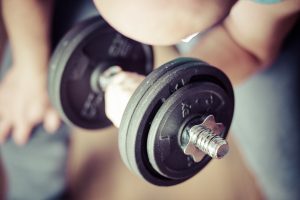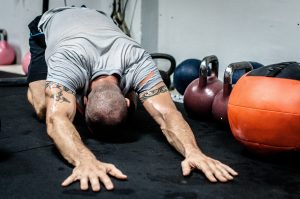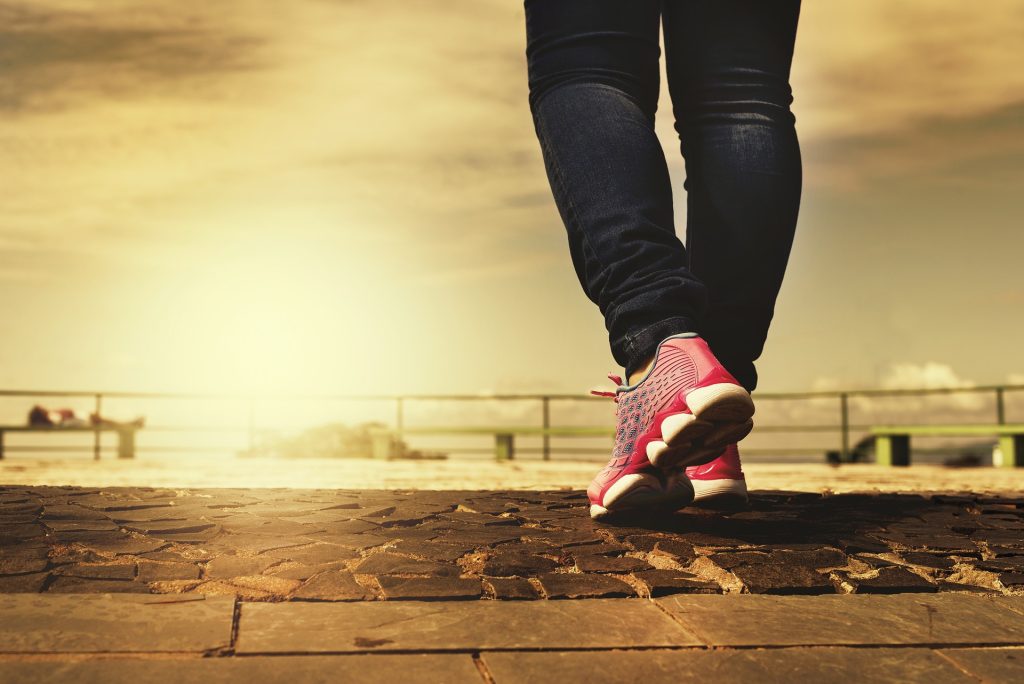The benefit of having a regular exercise schedule to help maintain sobriety is sometimes overlooked. Exercise and physical activity can benefit those undertaking addiction recovery and trying to avoid relapse.
You may wonder, “What is the role of exercise and physical activity in addiction recovery?”
Exercise and physical activity can prevent relapse when paired with other forms of treatment. It offers a consistent routine, fills in spare time, manages mental health, and boosts self-esteem.
Regular exercise only requires a little effort to reap the benefits, although it may seem intimidating.
In this post, we will explore the impact exercise has on your body and mind, why it’s one of the best ways to maintain sobriety, and how to start enjoying its benefits immediately.
How Does Exercise and Physical Activity Affect Your Mind and Body?
Exercise and physical activity benefit the body and mind when recovering from addiction. Physical and mental health are more closely related than you can imagine, and exercise allows you to improve both simultaneously.
Let’s look closer at the benefits of regular exercise on physical and mental well-being.
Physical health benefits
You can build bone and muscle strength while maintaining a healthy weight through physical activity.
Exercise is especially beneficial because weight struggles are common among individuals recovering from substance addiction. This is particularly true for those who stop smoking and suffer increased appetite due to nicotine replacement.

But weight loss is not the only physical health benefit of exercise. According to the CDC, engaging in a minimum of 150 minutes of exercise per week can lower the risk of diabetes, cardiovascular disease, some cancer types, and other chronic illnesses.
Additionally, regular exercise can boost the number of nerve connections in the brain, which aids in the brain’s recovery from the negative physiological consequences of drug addiction.
Mental health benefits
Exercise is excellent for your mind, just as it is for physical health. When you exercise, your body produces endorphins, which interact with receptors in your brain to reduce your perception of pain, just like morphine works.
The natural stimulation of these receptors through exercise prevents addiction and dependency. This process might yield positive feelings of fulfillment and optimism after every workout.
Adopting good mental health practices is especially crucial for individuals in addiction recovery because mental disorders like anxiety and depression usually co-occur with addiction.
Exercise can play an essential part in recovery by boosting mental health and promoting a positive attitude toward life. Sharper thinking, learning, and decision-making abilities are other benefits of exercise on mental health.
What is the Role of Exercise and Physical Activity in Addiction Recovery?
Recent research found that following a weekly exercise routine reduced participants’ overall drug use and even total abstinence for some. But what exactly is the role of exercise and physical activity in addiction recovery?
Below are seven ways through which exercise and physical activity promote sobriety.
1. Exercise curbs cravings
Having an exercise routine is advantageous for individuals with a history of abusing such drugs as:
- Cocaine
- Opioids
- Amphetamines
- Cannabis
Studies have demonstrated that regular exercise can increase the days a person abstains from drugs. In one study, subjects with substance use disorders who engaged in regular, moderate aerobic activity for 12 weeks fared much better than those who did not.
Physical activity speeds up the flow of blood to your heart. For this reason, regular exercise can improve the supply of oxygen and nutrients to your body’s muscles.

Due to this nutritional boost, your body becomes stronger and has a better capacity to expend energy throughout the day. The higher energy levels, in turn, make routine tasks more manageable and frequently increases your ability to resist the impulse to take drugs.
Exercise is a highly effective approach for helping individuals quit smoking when combined with regular cognitive-behavioral treatment because it meets physiological and psychological needs that nicotine replacement cannot meet.
That explains why most ex-smokers start exercising to quit smoking.
2. Exercise offers structure and routine
Maintaining a fixed routine is one of the things that makes regular exercise so effective for reducing cravings. You can create a daily routine by enrolling in exercise classes or starting a workout schedule.
Joining a group workout class or informing someone about your new exercise commitment holds you accountable and motivates you to follow your program.
You can even use exercise to structure your day by scheduling workout sessions for a particular time. For instance, morning exercise can reduce the impulse to stay up late or take alcohol the previous night.
Similarly, you can use after-work exercises as an excuse to miss happy hour. It will be easier to remain on track if you follow a daily schedule designed to account for typical moments of vulnerability.
3. Exercise fills your time and thoughts
Most people realize they have lots of free time once they embark on the addiction recovery journey because they no longer obsess over, buy, or use drugs. This extra time can be a blessing or a curse- depending on how you use it.
The best use of extra time is to exercise, which might take up a few hours per week.

Generally, it is advisable to remain occupied when recovering from addiction, particularly during the early stages.
Maintaining a regular exercise schedule eliminates the need for making split decisions on what to do with free time during the day when most make poor decisions.
4. Exercise relieves stress
Anyone in addiction recovery must learn how to manage stress since withdrawal from alcohol or drugs can worsen it. Exercise directly impacts the area of the brain that deals with stress and anxiety.
Both high- and low-intensity exercise has been proven to relieve stress, help individuals become more aware of their mental state, and provide mental relief.
Along with helping individuals focus on their body movement instead of stressors, exercise stimulates pain-relieving hormones. Regular exercise helps regulate stress levels in the body by controlling adrenaline.
Although the stress hormone adrenaline is crucial for the fight-or-flight response, having too much of it can harm general health.
Exercise also increases your heart rate, which boosts the release of serotonin, an anti-stress hormone that enhances your sense of health. For individuals in recovery, exercising to reduce stress is healthier than turning to drugs, overindulgence, or losing their temper.
Various physical activities, including cycling and meditation, can boost levels of naturally occurring stress-relievers, so there is a therapeutic exercise for everyone.
5. Exercise with others fosters healthy relationships
Joining a group workout class at a nearby fitness center is a fantastic opportunity to meet others in a sober environment.
Making new friends in the early stages of recovery can be difficult, but enrolling in a group class or sports club can help you meet individuals who share your interests.
Physical activity and sports tend to draw people together and build relationships, whether through winning or the shared pain of losing the league championship.

Some places even have programs or exercise clubs to support individuals struggling with addiction recovery. Participating in one of these groups can help you maintain sobriety and interact with others in the local community.
Exercising with a group can motivate, push, and hold you accountable while making new friends.
6. Exercise improves your self-image
Exercise can foster a positive body image and boost self-esteem, regardless of whether you want to cut weight or gain muscle strength. Maintaining your physical body generally promotes self-confidence and improves your self-image.
Achieving a fitness goal may also boost self-esteem and serve as an assurance that you can overcome challenges. This notion is crucial for individuals in recovery who deal with cravings daily.
A research study found that noticing the results of regular physical activity improves people’s general motivation to adopt new behaviors.
7. Exercise helps you sleep better
Sleep is a crucial part of addiction recovery because, without enough rest, you cannot perform at your best or make sound decisions. Poor sleep is a common cause of fatigue, increasing the relapse risk.
But while getting enough sleep is vital for individuals in addiction recovery, withdrawal often makes it difficult to sleep through the night during the early stages of recovery.

Regular exercise can help you fight insomnia by promoting restorative processes during sleep. In fact, studies show that engaging in at least 150 minutes of vigorous physical activity per week can improve sleep quality by as much as 65%.
Furthermore, doing a quick workout before bed increases the rate at which your body cools off, which helps you fall asleep.
How Can I Start Exercising?
Various workout options are available for individuals with different experience levels. Remember that low intensity does not equate to less effectiveness when choosing an exercise method. Even walking for 30 minutes every day is enough to improve your health.
You may need to try a few different physical activities before settling on one that suits you. By trying several, you will discover what aspects of exercise you love more and which type is best for you.
Getting started might be the most challenging step in any fitness journey, but experimenting with various workouts can be enjoyable. You will be surprised at how fast your health improves.

Here are some common exercises you can try:
- Running: Frequent runs are a good way of building self-control, relieving stress, and accomplishing personal objectives. Running with other people allows you to meet new people and integrate into the running community, while jogging alone will enable you to process your thoughts.
- Hiking: You can summit mountains by hiking– talk of a confidence boost! Being out in the natural environment can foster positive mental health effects, and hiking gives you the bonus of being physically active.
- Swimming: This is a great aerobic exercise for those with fragile joints or a history of injuries since it is a low-impact activity. The water’s chilliness can help ease withdrawal stress, aches, and soreness.
- Cycling: Like swimming, cycling improves blood flow yet is gentle on the joints whether you ride out on the trails or in an indoor group spin class.
- Yoga: The mind and body are both trained through yoga. Yoga can help you become more self-aware and mindful, lower stress, and alleviate pain. Even individuals in addiction recovery can benefit from regular yoga sessions to reduce cravings and improve their mental health.
There are unlimited options, and no type of exercise is better than the other. Choose what suits your interests, abilities, and motivation, and get started.
You Need More Than Exercise to Recover from Addiction!
Studies show that exercise is a potential treatment for substance drug use disorder. When paired with other evidence-based therapies, exercise can yield positive effects in addiction recovery linked with biological and behavioral outcomes of physical activity.
That means whatever exercise you participate in will significantly aid your addiction recovery. But remember, exercise is not a replacement for a proper addiction treatment plan.
While exercise and physical activity play a role in recovery, you must work with an addiction recovery professional to sustain your journey to sobriety.
At CCIWA we connect you with experienced recovery professionals near you. Contact us today to get started with your journey to full recovery.



